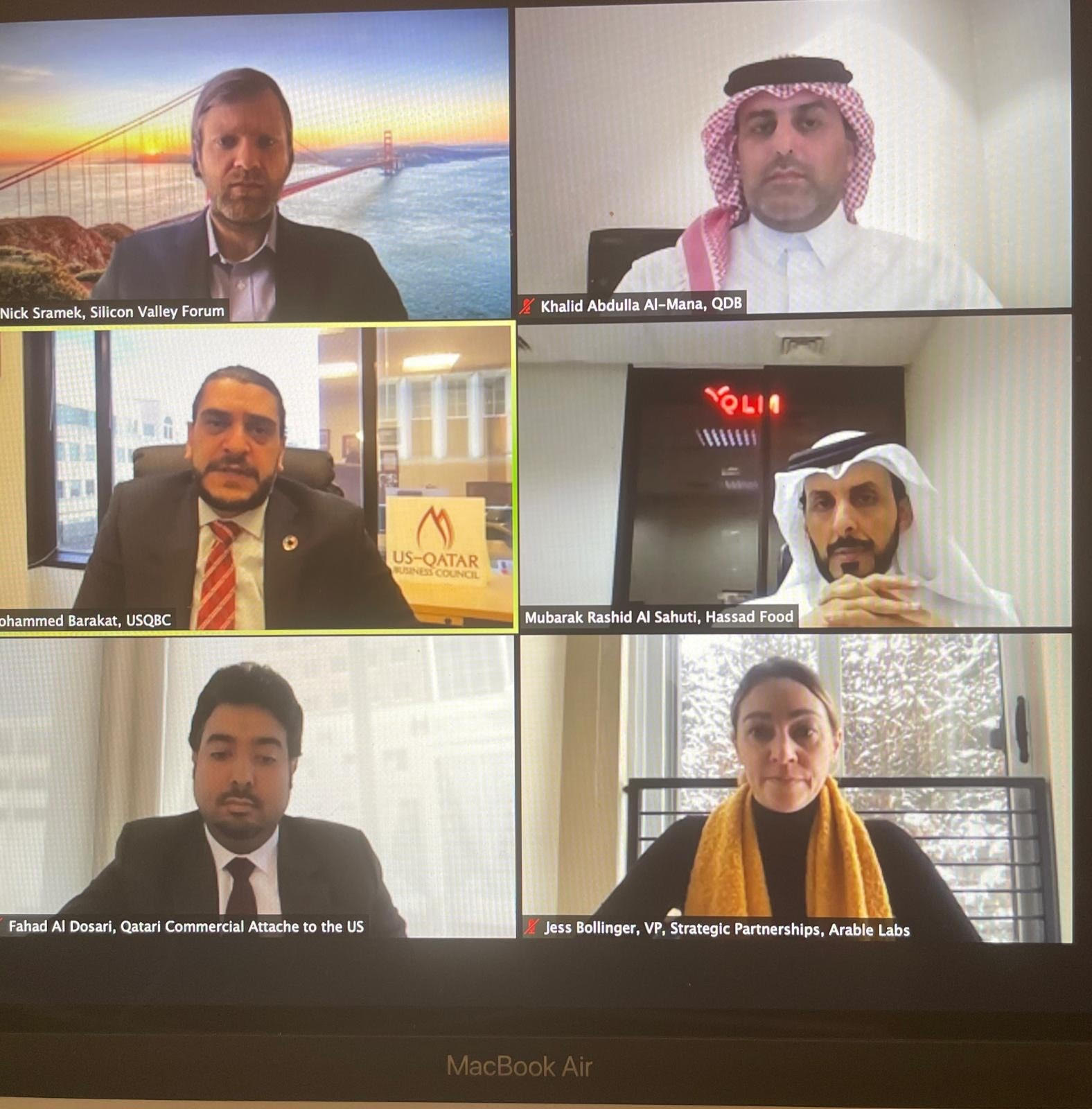Qatar's Embassy to US Organizes Interactive Dialogue on Agricultural Technology

Washington – Information Office – 16 December
The Embassy of the State of Qatar to the United States organized an interactive dialogue on the agricultural technology solutions and building smart and flexible food systems in the State of Qatar, in cooperation with the Silicon Valley Forum and the US-Qatar Business Council.
The dialogue, which brought together more than 50 participants interested in exploring business opportunities in the agricultural sector in the State of Qatar, highlighted the agricultural sector in Qatar, its rapid development in recent years, and its current priorities and technological needs, The dialogue included a presentation made by Vice President of Strategic Partnerships at Arable Labs Jess Bollinger, who shed light on the company's technology and its potential applications in the State of Qatar.
Qatar's Commercial Attache to the US Fahad Al Dosari took part in the dialogue as a keynote speaker, along with Director of Business Relations at Hassad Food Mubarak Rashid Al Sahouti and Executive Director of Business Finance Department at Qatar Development Bank Khalid Al Mana.
In his speech, the Qatari Commercial Attache Fahad Al Dosari underlined the resilience of Qatar's economy in facing the challenges posed by the COVID-19 pandemic, highlighting the strength of the agricultural sector in the country in particular.
He noted that the ambitious food security efforts of the State of Qatar before the outbreak of the pandemic led the country to be among the highest-ranked countries in the world in the field of food security, stressing that this sector has continued to grow at strong rates, despite the circumstances and challenges that the world is experiencing.
Al Dosari stressed the importance of supporting and developing technology in this sector, noting that despite the achievements and successes made in the country's agricultural sector, technological needs still exist. In particular, he highlighted the special needs in rationing and preserving water, recycling techniques, hydroponics, and data analysis, which present opportunities for the US Agri-Tech companies.
Al Dosari affirmed the strong commercial relations between the United States and the State of Qatar, noting that the bilateral trade and investment have reached record levels, which puts US companies in a strong position to compete for the opportunities available in the country.
For his part, Executive Director of Business Finance Department at Qatar Development Bank Khalid Al Mana indicated that Qatar Development Bank offers financing to the companies in the country, including those working in the agricultural sector, noting that the Bank had provided a total of $2.2 billion to finance more than 1,000 companies specialized in this sector. In addition, Qatar Development Bank provides financial support for companies in a variety of fields, including agriculture, especially in the areas of marketing, commercial consulting and export promotion, as well as his studies to develop an incubator for the agricultural sector.
Meanwhile, Director of Business Relations at Hassad Food Mubarak Rashid Al Sahouti focused on the role of Hassad Food in developing the agricultural sector, noting the activities carried out by the company to support the agricultural development in the State of Qatar, mainly its efforts in establishing a central market to promote the production and create opportunities for local producers. He also mentioned the sectors in which Hassad has so far invested in, locally and abroad.
In the same context, Director of International Relations at Silicon Valley Forum Nick Sramek shed light on the agricultural technology scene in the United States, noting that this technology has seen an increasing demand at the global level and a high level of investment which he said amounted to nearly $289 billion in 2019.
Vice President of Strategic Partnerships at Arable Labs Jess Bollinger provided an overview of the company's monitoring technology, which helps track crop health and conditions by making use of data analyzes that allow farmers to improve growth, in a way that allows them to reduce water use and increase operational efficiency.

